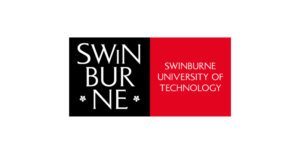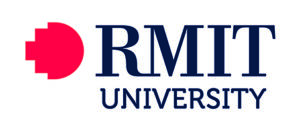The Play It Again project is a collaboration between researchers at Swinburne and RMIT universities, ACMI, AARNet, UNESCO PERSIST and OpenSLX. Chief Investigators are Melanie Swalwell (Centre for Transformative Media Technologies, Swinburne), Helen Stuckey (RMIT), Denise de Vries (Swinburne), Angela Ndalianis (Swinburne), with Seb Chan (ACMI) a Partner Investigator.
 Swinburne University of Technology is a world-class university creating social and economic impacts through science, technology and innovation. Founded in 1908 by the Honourable George and Ethel Swinburne as the ‘Eastern Suburbs Technical College’, Swinburne gained university status in 1992. Swinburne researchers have a reputation for high-quality research with strengths in astronomy, physics, engineering, materials science, computer science and information technology, design and innovation, health sciences, neurosciences and mental health, and are collaborating with industry through embedded partnerships to drive innovation and create impact.
Swinburne University of Technology is a world-class university creating social and economic impacts through science, technology and innovation. Founded in 1908 by the Honourable George and Ethel Swinburne as the ‘Eastern Suburbs Technical College’, Swinburne gained university status in 1992. Swinburne researchers have a reputation for high-quality research with strengths in astronomy, physics, engineering, materials science, computer science and information technology, design and innovation, health sciences, neurosciences and mental health, and are collaborating with industry through embedded partnerships to drive innovation and create impact.
 RMIT University is a world leader in Art and Design; Architecture; Education; Engineering; Development; Computer Science and Information Systems; Business and Management; and Communication and Media Studies. RMIT was established in 1887 as the Working Men’s College with the aim of bringing education to the working people of Melbourne. RMIT is a member of the Australian Technology Network, a global leader of a new generation of universities and partners with Open Universities Australia to deliver outstanding online education experiences.
RMIT University is a world leader in Art and Design; Architecture; Education; Engineering; Development; Computer Science and Information Systems; Business and Management; and Communication and Media Studies. RMIT was established in 1887 as the Working Men’s College with the aim of bringing education to the working people of Melbourne. RMIT is a member of the Australian Technology Network, a global leader of a new generation of universities and partners with Open Universities Australia to deliver outstanding online education experiences.
 The Australian Centre for the Moving Image (ACMI) is Australia’s national museum of film, TV, video games, digital culture and art. Unique in the museum landscape in Australia, we celebrate the past, present and future of the moving image and its profound impact as it transports, challenges and entertains people of all ages and backgrounds, right across the globe. When ACMI was established in 2001 (formerly the State Film Centre of Victoria), hundreds of single- and multi-channel media works were added to the collection along with videogames and numerous art commissions that furnished the building upon opening. Since then, the media arts collection has amassed approximately 7000 games. https://twitter.com/ACMI
The Australian Centre for the Moving Image (ACMI) is Australia’s national museum of film, TV, video games, digital culture and art. Unique in the museum landscape in Australia, we celebrate the past, present and future of the moving image and its profound impact as it transports, challenges and entertains people of all ages and backgrounds, right across the globe. When ACMI was established in 2001 (formerly the State Film Centre of Victoria), hundreds of single- and multi-channel media works were added to the collection along with videogames and numerous art commissions that furnished the building upon opening. Since then, the media arts collection has amassed approximately 7000 games. https://twitter.com/ACMI
 AARNet is Australia’s national research and education network providing high-performing network and services purpose-built to support collaboration, knowledge sharing and innovation. Pioneering the internet in Australia in 1989, AARNET empowers universities, research institutes, TAFEs, schools and cultural organisations to unlock new digital opportunities for teaching, learning and research.
AARNet is Australia’s national research and education network providing high-performing network and services purpose-built to support collaboration, knowledge sharing and innovation. Pioneering the internet in Australia in 1989, AARNET empowers universities, research institutes, TAFEs, schools and cultural organisations to unlock new digital opportunities for teaching, learning and research.
 UNESCO PERSIST (Platform to Enhance the Sustainability of the Information Society Transglobally) is a cooperation between UNESCO, the International Council on Archives (ICA), the International Federation of Library Associations and Institutions (IFLA), LIBER, the National Library of the Netherlands and the Digital Heritage Netherlands Foundation (DEN). The project collects and shares worldwide best practices and guidelines on selecting policies and digital strategies. PERSIST is a project of the Memory of the World Programme, set up to ensure long-term access to the World’s Digital Heritage by facilitating development of effective policies, sustainable technical approaches, and best practices in ensuring long term access and use of digital artefacts.
UNESCO PERSIST (Platform to Enhance the Sustainability of the Information Society Transglobally) is a cooperation between UNESCO, the International Council on Archives (ICA), the International Federation of Library Associations and Institutions (IFLA), LIBER, the National Library of the Netherlands and the Digital Heritage Netherlands Foundation (DEN). The project collects and shares worldwide best practices and guidelines on selecting policies and digital strategies. PERSIST is a project of the Memory of the World Programme, set up to ensure long-term access to the World’s Digital Heritage by facilitating development of effective policies, sustainable technical approaches, and best practices in ensuring long term access and use of digital artefacts.
 The OpenSLX GmbH, founded 2006, is a University of Freiburg technology spin-off, developing long-term preservation solutions for complex digital content. The OpenSLX team has more than 10 years experience in the field of long-term preservation. Our journey started with the PLANETS project and the bwFLA project as part of the University of Freiburg’s preservation research team. These projects provided the conceptual groundwork for Emulation-as-a-Service.
The OpenSLX GmbH, founded 2006, is a University of Freiburg technology spin-off, developing long-term preservation solutions for complex digital content. The OpenSLX team has more than 10 years experience in the field of long-term preservation. Our journey started with the PLANETS project and the bwFLA project as part of the University of Freiburg’s preservation research team. These projects provided the conceptual groundwork for Emulation-as-a-Service.
